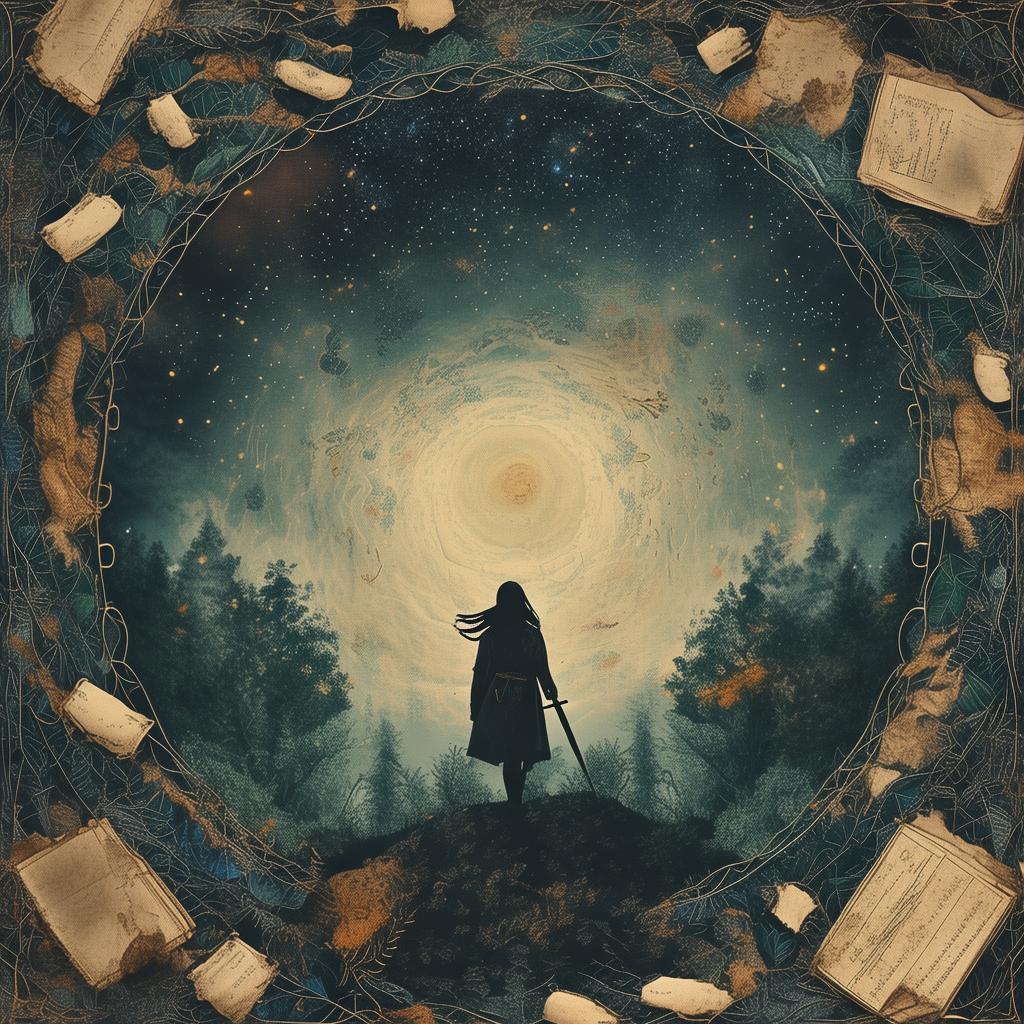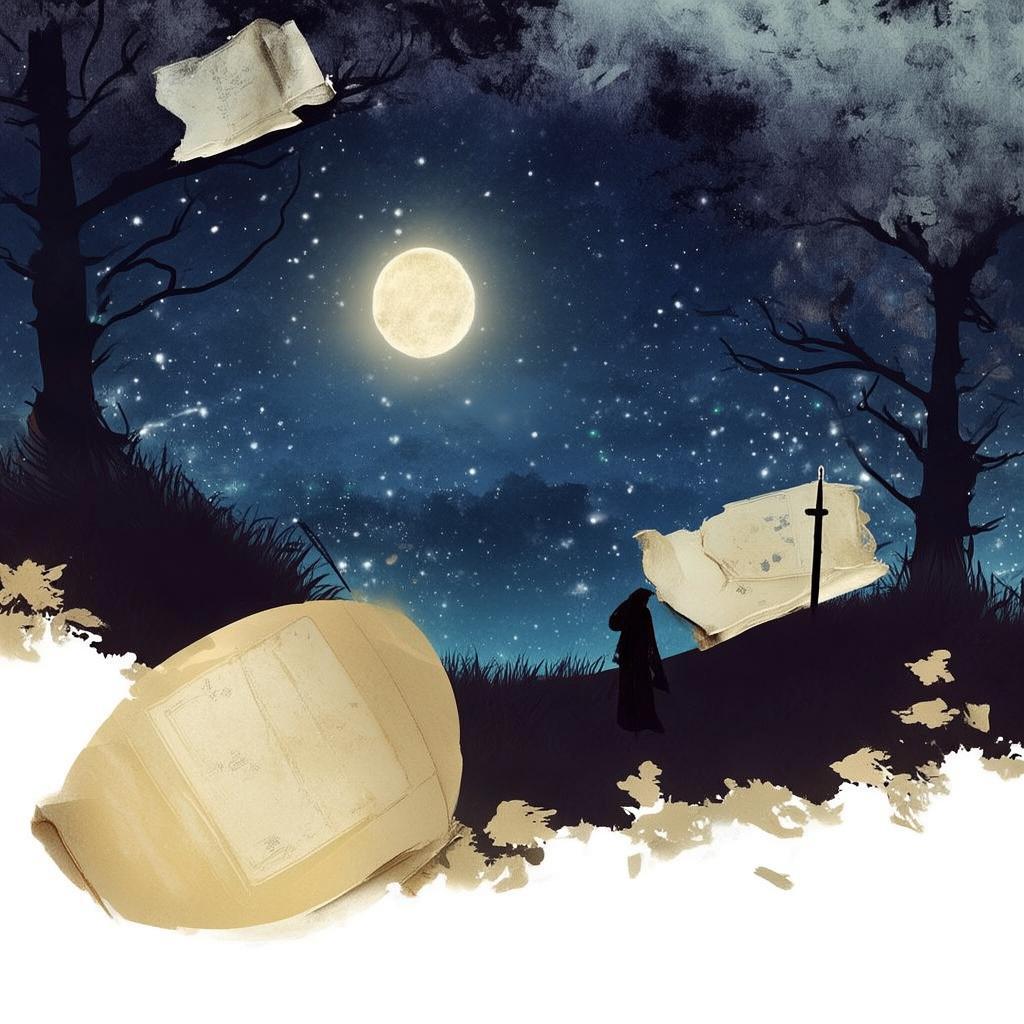Requiem for the Opera's Shadow
The moon hung low in the sky, casting an eerie glow over the grand opera house in Reims. The air was thick with anticipation as the audience settled into their seats, eager for the opening act of the Rossini Renaissance Revival. Yet, beneath the surface of this glittering spectacle, a storm brewed, threatening to upend the carefully orchestrated performance.
Amid the applause, a single voice cut through the noise—a voice that had once echoed through the halls of the greatest opera houses in Europe. The audience knew it well, though it had been years since the diva had graced the stage. Her name was Isolde, and her voice was a legend. Now, her return was shrouded in mystery, as though she had emerged from the depths of time itself.
As the first act commenced, Isolde stepped onto the stage, her presence commanding the room. The audience was captivated, but behind the curtain, a different drama unfolded. The body of a young assistant, found in the dressing room, sent shockwaves through the company. It was clear that this was no ordinary accident.
Detective Lucien Rousseau, known for his keen intellect and relentless pursuit of the truth, was called to the scene. His investigation would lead him to the lives of three opera legends—Giuseppe Verdi, Richard Wagner, and the mysterious Isolde. Each had once been the toast of the opera world, each had secrets that could shatter the fragile facade of their lives.

Lucien's inquiries revealed that the assistant had been working on a groundbreaking opera, one that promised to redefine the art form. It was a project that had brought the three legends together, though their reunion was as stormy as the music they composed. The assistant's death seemed to be a tragic accident, but the cryptic notes found on his body hinted at something more sinister.
As Lucien delved deeper, he discovered that the assistant had been in possession of a rare score, one that contained a hidden message. The message pointed to a reunion in the past, a time when the three opera legends had met under the banner of a secret society dedicated to the preservation of classical music. This society had been dissolved long ago, but its influence had never truly vanished.
Lucien's investigation led him to a hidden chamber beneath the opera house, where he found a series of clues that tied back to the three legends. Each had played a part in the assistant's death, and each was haunted by their past. Verdi, who had once loved Isolde, now found himself at odds with her over the opera's score. Wagner, a man of contradictions, was torn between loyalty to his friend and his own ambition. And Isolde, who had been betrayed by love, was driven by a desire for redemption.
As the pieces of the puzzle fell into place, Lucien realized that the assistant had been the key to unlocking the society's secrets. The opera's score was the final piece, a cipher that could reveal the society's hidden agenda and the truth behind the assistant's death. With time running out, Lucien had to race against the clock to prevent a tragedy that could have far-reaching consequences.
The climax of the story reached its peak during the final act of the opera, where the truth was revealed. The assistant had been killed by a member of the society, who sought to protect the organization's secrets at any cost. Isolde, in a twist of fate, had been the intended victim, but her presence had forced the killer to strike prematurely.
The opera's conclusion was bittersweet. Verdi and Wagner, bound by a shared past, reconciled their differences, and Isolde found solace in the music she had created. The opera's score, now complete, was a testament to the power of art to heal and transcend the darkness of the past.
As the curtain fell, Lucien stood in the wings, reflecting on the events that had unfolded. The opera had served as a backdrop for a story that was far more complex than anyone had imagined. The secrets of the past had been laid bare, and the future of classical music had been secured. But the true cost of the reunion was a heavy one, and Lucien knew that the opera house would never be the same.
In the end, the Reimsian Reunion in the Past was not just a performance; it was a testament to the enduring power of art, friendship, and the human spirit.
✨ Original Statement ✨
All articles published on this website (including but not limited to text, images, videos, and other content) are original or authorized for reposting and are protected by relevant laws. Without the explicit written permission of this website, no individual or organization may copy, modify, repost, or use the content for commercial purposes.
If you need to quote or cooperate, please contact this site for authorization. We reserve the right to pursue legal responsibility for any unauthorized use.
Hereby declared.









